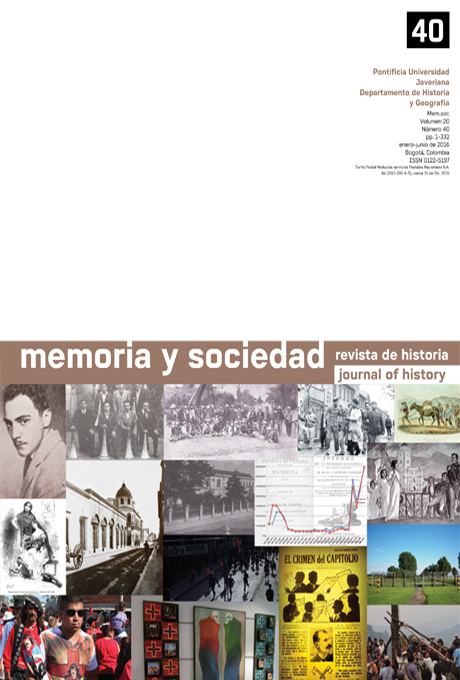Abstract
This article considers how memory and history
are negotiated and constructed. The analysis
takes by way of example the current conflict
in Colombia and the two German dictatorships
of the 20th Century (Third Reich and
rda). Although the situation is different –and
quite complex – in both countries, not allowing
for a simple comparison, the juxtaposition
of some common characteristics allows us to
gain some general understanding of the dynamics
of memory. We examine how both societies,
German and Colombian, do not have a
voluntary rapprochement to each corresponding
difficult and painful past, but instead owe
it to an internal or external pressure. We show
how in both cases it involves long and slow
processes, and we argue that the discourses of
the past are in a state of constant negotiation.
The journal Memoria y Sociedad is registered under a Creative Commons Attribution 4.0 International Public License. Thus, this work may be reproduced, distributed, and publicly shared in digital format, as long as the names of the authors and Pontificia Universidad Javeriana are acknowledged. Others are allowed to quote, adapt, transform, auto-archive, republish, and create based on this material, for any purpose (even commercial ones), provided the authorship is duly acknowledged, a link to the original work is provided, and it is specified if changes have been made. Pontificia Universidad Javeriana does not hold the rights of published works and the authors are solely responsible for the contents of their works; they keep the moral, intellectual, privacy, and publicity rights.
Approving the intervention of the work (review, copy-editing, translation, layout) and the following outreach, are granted through an use license and not through an assignment of rights. This means the journal and Pontificia Universidad Javeriana cannot be held responsible for any ethical malpractice by the authors. As a consequence of the protection granted by the use license, the journal is not required to publish recantations or modify information already published, unless the errata stems from the editorial management process. Publishing contents in this journal does not generate royalties for contributors.

